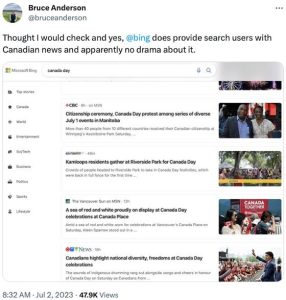Many marketers are best positioned to drive change, improve alignment and create new opportunities for business results.
Most marketers are equipped with copious amounts of data that help us understand our customers, create meaningful messaging that resonates with our audience and drives the business outcomes we need to achieve our goals. Marketers also have the ability to translate different trends across customers and prospects such as strong lead generation sources, common themes, objection trends and overall responses to different campaigns. But, many organizations operate in
A solution? Establish a revenue optimization team to bring together the key internal players in your organization to improve alignment and ultimately, drive more revenue.
Marketers and sales need to track the same goals
Thanks to the amount of valuable information accessible through our martech stacks, marketers can — and should — play a critical role in establishing a customer-centric revenue optimization team.
“Revenue optimization starts with the idea of putting the customer in the center of every interaction an enabling everyone to align around the customer to generate value in every interaction,” said Patrick Morrissey, chief marketing officer of customer revenue optimization platform, Altify. And according to Morrissey, marketers should play a critical role as part of the revenue
“From a marketing perspective, thinking about the fundamental outcomes, marketers have to start thinking of themselves as part of the revenue team,” said Morrissey. “This intersection presents an opportunity for marketers who are generally better communicators to become the translation mechanism for an entire team. Instead of tracking pipeline, marketers need to track revenue in closed/won business along with the sales team.”
The shift in mindset expands past the marketing team, however. According to Jenn DiMaria, senior manager of client services at marketing automation solution provider Digital Pi, the shift in mindset needs to be organizational. “Marketing is often viewed as a cost center, but in reality, other teams are lusting after the tools and data we have access to,” said DiMaria. “Aligning a revenue team creates opportunities for marketers to improve accessibility to the data and help bridge gaps with other parts of the organization.”
Marketers, get closer to the customer
Marketers tend to be far removed from any interactions with customers, but it is extremely valuable to engage face-to-face with customers. After all, marketers understand that relationship-building is key to retaining customers. According to Morrissey, marketers need to put themselves in the shoes of the customer in order to understand their challenges.
“Marketers should focus on how we can get out of our own way and put ourselves in the shoes of the customers,” said Morrissey. “Going on the road to meet with salespeople and sit with customers will help marketers better understand the market, the broader changes in technology and fundamentally how to help customers succeed, personally and professionally.”
“Marketers need to have some real-world customer experience, explained Mary Ngai, founder of Connector42 and head of analytics and technology at RI. “Even if marketers are listening on sales calls, it can be incredibly insightful in grasping a better understanding of their needs.” Ngai also recommends that marketers attend customer site visits during ongoing projects or sales deals to increase visibility into accounts.
In addition to more face time with customers, Morrissey recommends that marketers lead internal account reviews and deal reviews with the sales and customer success teams. Regularly reviewing the accounts with members of different parts of the organization will expose different issues and areas that can be addressed by the necessary members of the revenue optimization team. Working with customer success can also bring to light what some of the daily challenges and successes the customer experiences — valuable insight for marketers as they developing retention campaigns to drive renewals.
Leading the path to revenue optimization
Revenue optimization teams present an opportunity for marketers to leverage their communication, analytical and creative skills to improve holistic marketing efforts in coordination with other internal departments.
“Marketers have proven that we can lead revenue optimization teams as we typically bear the brunt of the responsibility when it comes to acquiring new leads and we have to track our efforts,” said DiMaria. “Also, tools that have entered the market in the past ten years have made this possible.”
The concept of implementing a fundamental shift in thinking may seem overwhelming, but the long-term benefit is streamlined efforts across your organization and consistent communication around prospect and customer activities.
“If you think about the customer journey, we’re all trying to get a numeric view of the customer — BDRs are measured by the total number of call they make and are concerned with propensity-to-buy data,” said Morrissey. “Marketers are providing that data, creating segments and determining what funnel to put a prospect in. Then we talk about deal size or ACV, then finally we’re just an NPS score. Marketers are the ones who can best translate this into plain English, for everyone to understand.”
Marketing Land – Internet Marketing News, Strategies & Tips
(22)
Report Post




